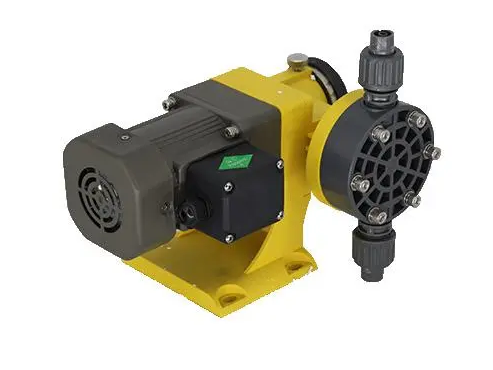Application of diaphragm metering pumps in the food industry
Diaphragm metering pumps are widely used and important in the food industry, mainly in the following aspects:
1. Food raw material delivery
Diaphragm metering pumps can be used to transport various food raw materials, such as water, oil, juice, syrup, etc. Its precise metering ability and leakage-free characteristics ensure the accuracy and safety of raw materials during transportation, avoiding the waste and pollution of raw materials.
2. Food additives addition
In the food production process, various food additives such as preservatives, flavorings, pigments, etc. are often required. Diaphragm metering pumps can accurately control the amount of additives added to ensure that the taste, color and safety of the finished food meet the standards.
3. Food and beverage processing
During the processing of beverages, dairy products and other foods, diaphragm metering pumps can be used to transport and mix various liquid raw materials. Its efficient mixing ability and precise metering function help to improve the quality and consistency of products.

4. Cleanliness and hygiene
The food industry has extremely high requirements for the cleanliness and hygiene of production equipment. The diaphragm metering pump adopts a leakage-free design, is easy to clean and maintain, and meets the hygiene standards and regulatory requirements of the food industry. During the production process, it can ensure the cleanliness and hygiene of the equipment and avoid food contamination.
5. Improve production efficiency
The application of diaphragm metering pumps in the food industry not only improves the degree of automation in the production process, but also reduces the error and contamination risks caused by manual operation. Its efficient delivery and metering capabilities help improve production efficiency and reduce production costs.
6. Applicability and flexibility
The application of diaphragm metering pumps in the food industry has wide applicability and flexibility. It can adapt to liquid raw materials of different viscosities and concentrations to meet various production needs. At the same time, by adjusting the parameters and configuration of the pump, precise control of different process flows can be achieved.




